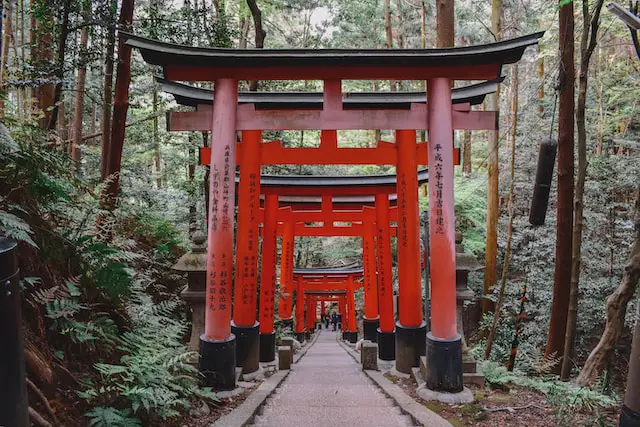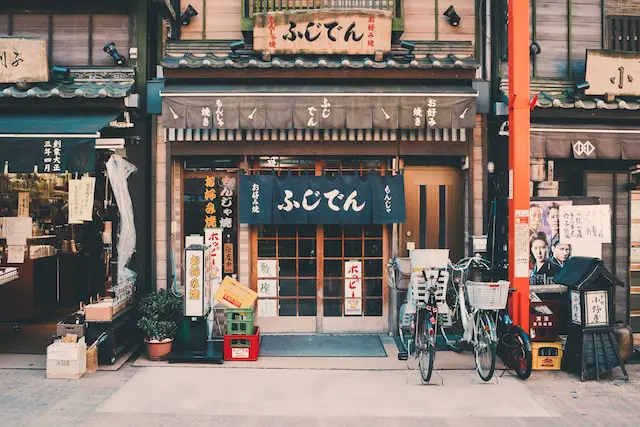In recent years, eco-travel has gained popularity around the globe, and Japan is no exception. As more people become aware of tourism’s impact on the environment, they seek to visit places and countries that prioritize sustainability concerning their natural and built environments. Amongst Asian countries, Japan stands out for its earnest efforts in promoting eco-tourism and numerous sustainability activities. Whether through green initiatives, conservation efforts, or emphasis on preserving their cultural heritage, Japan has proactively ensured that the footprint left by travelers aligns with the values necessary to protect our world for future generations. As conscious tourists, we must support these efforts, making Japan an excellent destination for those who wish to travel responsibly.
The Rise of Eco-Travel in Japan
As the world becomes increasingly aware of the fragility of our planet, an exciting trend is quickly making its mark in the travel industry: eco-tourism. This concept is not just about visiting natural landscapes but also fostering respect for different cultures and improving the well-being of local people. Eco-travel is about leaving a light footprint while enjoying unforgettable experiences.
Japan, a nation that has always been in harmony with nature, has swiftly adapted to this global trend, becoming an attractive destination for eco-conscious travelers. The sharp increase in Eco-travel in Japan cannot be overlooked when discussing the country’s advancements toward sustainability. Japan’s commitment to ecological preservation and sustainability is mirrored in its culture, lodging, transport, food, and iconic historical landmarks.
Through concerted efforts at both the governmental and individual levels, the popularity of sustainable tourism in Japan continues to bloom. Japan’s ongoing dedication to environmental protection and its rich cultural heritage provide fertile ground for the eco-conscious traveler. Travelers can bask in the beauty of well-preserved landscapes, participate in local traditions, and savor organic, locally sourced foods, all while leaving a lighter impact on our planet.
Framed by its millennial-old traditions and unique geographical location, Japan is catering to its vast array of eco-touristic alternatives to attract a new wave of conscious globetrotters. The rise of eco-tourism in the land of the rising sun seems to be a natural, inevitable progression, reflecting the spirit and values deeply ingrained into the Japanese way of life. Eco-tourists, prepare your luggage for a green adventure in Japan.
Green Shinto Shrines and Temples
For the conscious traveler, reverence for nature is at the heart of Japanese culture, prominently reflected in their historic Shinto Shrines and Japanese Temples. Many of these religious sites have been thoughtfully maintained for centuries, merging seamlessly with the surrounding landscapes – a testament to the Japanese dedication towards eco-friendliness.
Steeped in tradition and spirituality, these shrines and temples strive to uphold the principles of harmony with nature. Shrines like the Meiji Shrine, situated within a 170-acre forest in the heart of Tokyo, offer verdant escapes from city life while underscoring their commitment to the environment.
These places’ spiritual relevance is also closely intertwined with the country’s efforts towards sustainability. An evident example is the concept of Jinja no Mori, or “shrine forests,” which are conserved forest lands surrounding Shinto shrines. These protected spaces serve as modest bastions for biodiversity and demonstrate how deep respect for nature has been an integral part of Japanese ethos for ages.
Moreover, temples like the Kiyomizu-dera in Kyoto, a UNESCO World Heritage site, provide enchanting vistas and cultural encounters and continue to engage in sustainable practices, becoming some of the ultimate Eco-friendly places in Japan. They prove that religious sanctuaries can coexist with and contribute to green initiatives.
In conclusion, a visit to these green temples and shrines promises a spiritual journey and a firsthand experience of Japan’s sustainable ethos – offering the conscious traveler a rewarding trip into Japan’s rich history and its greener future.
Sustainable Lodging in Japan
When choosing where to stay on your Japanese adventure, consider a more sustainable option: eco-friendly accommodations. From modern hotels to traditional ryokans, Japan offers many eco-conscious choices that align with its commitment to sustainability.
Many Eco-friendly accommodations in Japan go above and beyond to reduce their environmental footprint. Instead of the generic hotel experience, these accommodations offer innovative programs such as solar power, in-house water treatment systems, organic cotton linens, and locally sourced food – to ensure a luxurious and responsible stay.
Traditional ryokans are another example of Green Hotels Japan. These charming establishments provide an immersive cultural experience while also prioritizing sustainability. Most ryokans reduce waste by using washable dinnerware, employing local staff to boost local economies, conserving energy using natural daylight as much as possible, and ingpairing guests with local activities promoting nature preservation.
Staying at these establishments offers benefits beyond the quintessential Japanese experience. Spending your holiday at an eco-friendly establishment supports sustainable practices, contributes towards local economies, and encourages industries to prioritize the environment. It creates a unique balance of exploring a new culture and promoting a healthier planet.
So, the next time you plan your itinerary for Japan, explore a stay that encourages sustainability and helps conserve the beautiful landscapes, cityscapes, and traditions that make Japan a desirable travel destination.
Eco-Friendly Transportation Options in Japan
As a country consistently at the forefront of technology and innovation, Japan also aims high in terms of environmental sustainability. This is particularly evident in its commitment to offering Sustainable Transportation in Japan, providing numerous eco-friendly options for locals and tourists.
The backbone of the country’s green transportation initiatives is its extensive public transportation network. Most notable among these are the Shinkansen, or bullet trains, which are a faster alternative to air travel and significantly reduce carbon footprints. Traveling by Shinkansen is a testament to Japan’s commitment to Green Travel Japan.
Apart from these high-speed marvels, there are also many electric buses in major cities such as Tokyo and Kyoto. These buses further minimize the environmental impact by reducing air pollution, thus providing a cleaner and greener way to explore the cities’ vibrant scenes.
For short-distance travel, tourists can benefit from the numerous cycling lanes in most of the country. Many towns in Japan offer bicycle rentals, making cycling an eco-friendly and enjoyable mode of transportation. This connectivity and availability make green travel a real possibility throughout Japan.
In conclusion, Japan’s sustainable and eco-friendly transportation options are numerous and extensively connected, ensuring that green travel can be practical and convenient. This is another reason to consider Japan an excellent destination for conscious travelers, regardless of location or itinerary.
Organic and Locally-sourced Food in Japan
In Japan, a genuine respect for nature is deeply ingrained in the culture, which has given rise to a thriving trend in Organic Food Japan. This dedication to sustainability and eco-friendliness has majorly influenced their food culture. Embracing a farm-to-table approach, Japanese restaurants highly emphasize utilizing locally sourced ingredients. This assures freshness and significantly reduces the carbon footprint associated with transporting food over long distances.
A visit to the local organic market would open up a cornucopia of seasonal produce that ensures maximum taste and nutritional benefit. Several farm-to-table restaurants in the heart of bustling cities like Tokyo and Osaka have gained popularity, committing to serving their customers the finest of Japan’s agriculture straight from the fields.
Seafood, the linchpin of Japanese cuisine, also takes center stage regarding sustainability. Practices such as Sustainably Sourced Food Japan have grown considerably over the years to provide delicious, varied, and ethically sourced seafood. Restaurants and businesses increasingly lean towards responsible sourcing practices, ensuring healthy ocean ecosystems for generations.
Japan is the perfect destination for anyone who cherishes food and respects the environment. Here, eating becomes an act of sustenance, not just for oneself but also for the planet. This conscious choice of enjoying food derived from Mother Nature, prepared with minimal intervention, can make your journey in Japan truly rewarding.
Japan’s Nature and Wildlife Conservation Efforts
Japan stays committed to caring for its natural environment through rigorous nature preservation and wildlife conservation policies in a world dominated by urban sprawl and industrialization. Japan is home to a diverse range of flora and fauna, some of which are endemic, making their conservation even more paramount.
Japan has designated a significant portion of its land as national parks. These protected areas offer breathtaking landscapes and crucial sanctuaries for numerous species that call them home. Visitors can immerse themselves in these areas’ rich biodiversity without impacting the delicate ecological balance.
One fine example of Japan’s commitment to conservation is the Tōhoku region. Post the tsunami and nuclear disaster of 2011, this region has been reborn as a beacon of sustainable tourism. Realizing the role of green spaces in mitigating climate change, extensive reforestation has been executed, transforming devastated areas into thriving habitats.
Furthermore, local organizations are engaged in wildlife conservation, reinforcing regulations to protect endangered species like the Japanese Crane and the Amami Rabbit. Tourists have the opportunity to contribute to conservation programs, raising their awareness and making their travels more meaningful.
Lastly, responsible tourism is heavily promoted in Japan. Tourists are encouraged to respect local customs, leave no trace, and utilize eco-friendly amenities. These practices establish a harmonious relationship between humans, wildlife, and nature.
In essence, Japan’s nature and wildlife conservation efforts ensure that the country’s unparalleled natural beauty persists for the enjoyment of future generations. So, when you step foot in Japan, you’re not just traveling but also driving change.
Conclusion
In this age of escalating global warming and rapid environmental degradation, the significance of eco-travel cannot be overstated. Traveling eco-friendly doesn’t just help conserve our planet but also enriches our travel experiences in innumerable ways. The importance of reintegrating with Mother Nature and understanding the vital balance that we share with the environment is a knowledge that is not just enlightening but also invigorating.
As we’ve seen, Japan shines as an enticing destination with abundant green initiatives. The nation’s significant endeavors toward environmental conservation manifest a commendable stride toward green travel. From Shrines and Temples that emphasize natural preservation, eco-friendly accommodations offering an environmentally conscious stay, and public transit alternatives reducing the carbon footprint to farm-to-table food practices and efforts towards wildlife conservation and nature preservation, Japan provides a broad spectrum of green experiences for the environmentally conscious traveler.
The uniquely harmonious blend of ancient tradition with futuristic innovation convinces us to consider Japan an enchanting destination for sustainable tourism. As you plan your next journey, let the land of the rising sun inspire us to travel in a way that respects Mother Earth, cherishes culture, and values the society we’re a part of. Indulge in these eco-tourism opportunities to contribute towards building a more sustainable world while adding memorable and unique experiences to your journeys.
Next time you embark on a voyage, remember that your travel choices can contribute positively to our world, and supporting sustainable practices can make a significant difference. So, explore Japan and clock your miles generously on the green scale of travel. Happy and conscious travels!




